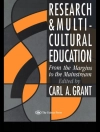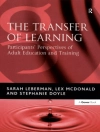Semetsky’s new book offers a bracing account of Tarot semiotics in view of its deep significance for educational experience. Analyzing the symbolic language of Tarot images that express the intimations of the unconscious, she invites readers to explore novel ways of learning about the nature of ourselves and the world we are situated in. Combining thorough research with an accessible style, this groundbreaking book is essential reading for present and future generations of practitioners, academics and students across disciplines. Pia Brînzeu, Professor of English Literature and Vice-Rector of the Universityof Timis¸oara, Romania; author of Corridors of Mirrors. A sequel to the author’s Re-Symbolization of the Self: Human Development and Tarot Hermeneutic and Semiotics Education Experience, Semetsky’s new book presents the Tarot sign-system as a school of ethical living. Bringing the philosophies of Peirce, Deleuze, Dewey, Whitehead and Gebser in a dialogue with the cutting-edge science of coordination dynamics, she grounds the art of Tarot in the logic of signs acting across nature, culture and human mind. Building on Noddings’ “maternal factor”, Semetsky demonstrates how the lessons embodied in Tarot symbolism recover the feminine value of relations and contribute to Self~Other integration. Such is the message of Tarot images. The Image is the Message. Igor Klyukanov, Professor of Communication, Eastern Washington University, USA; editor, Russian Journal of Communication; author of A Communication Universe: Manifestations of Meaning, Stagings of Significance. Semetsky’s amalgamation of the techniques of visual communication with the emerging field of edusemiotics is an absolute masterpiece in transdisciplinarity. By forging diverse strands of inquiry into an overall model of how images enhance learning, Semetsky’s new book provokes us to take a fresh look at iconic information and is a required reading for everyone who is engaged with the artand science of visual semiotics at the intersection of nature and culture. Marcel Danesi, Professor of Anthropology, University of Toronto, Canada; editor-in-chief, Semiotica; author of The Quest for Meaning: A Guide to Semiotic Theory and Practice. Finally. An in-depth look at Tarot from within the field of semiotics, a perspective that had been inexplicably overlooked until now. As a language of exile from language, Tarot cards are silent words that became images. Here is a book that turns our thirst for symbols into a learning tool. The sign sings in Inna Semetsky’s work. Enrique Enriquez, (con)temporary tarot, www.tarologyfilm.com; author of Tarology.
Table of Content
Prologue: Educating for three Is; Chapter 1: At the edge of chaos; Chapter 2: Signs in action; Chapter 3: The language of images; Chapter 4: Transversal communication; Chapter 5: Becoming-woman; Chapter 6: Toward integral consciousness; Chapter 7: An ethics of integration; Chapter 8: Signs and information; Chapter 9: Exploring educational futures; Chapter 10: The paradox of inquiry; Epilogue: Ghosts in the machine?; Works Cited; Acknowledgements; Index.












